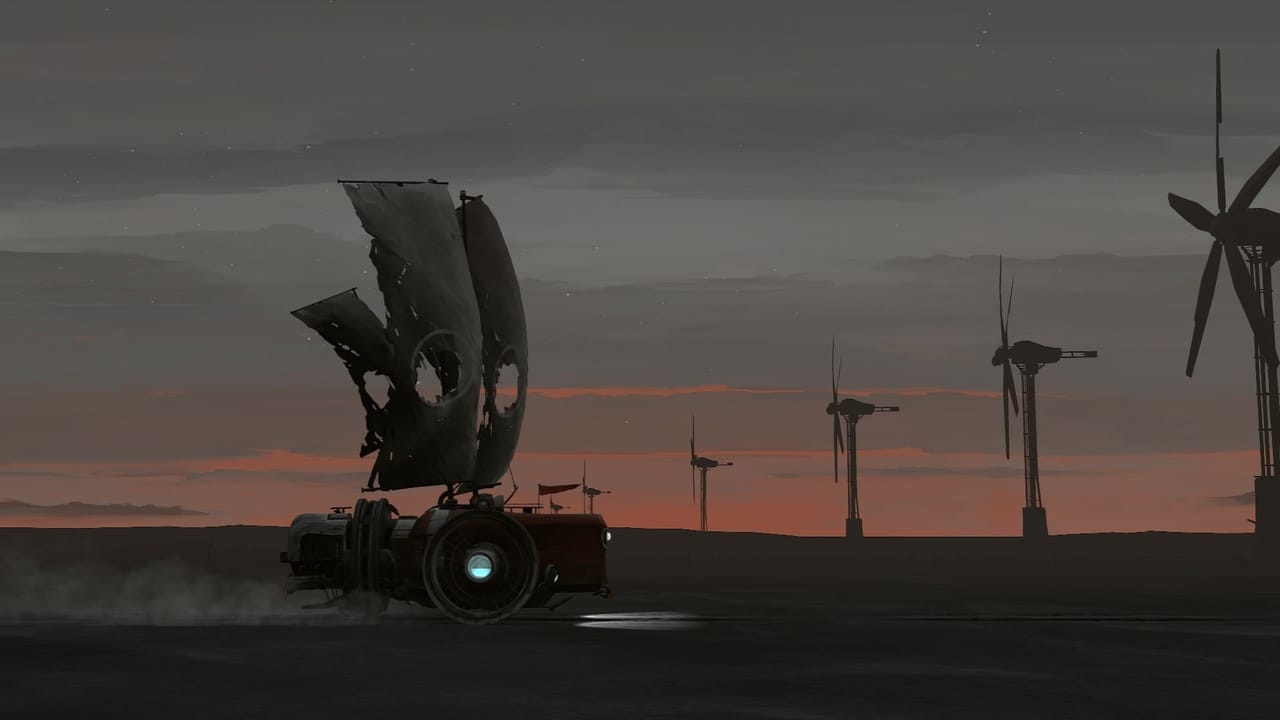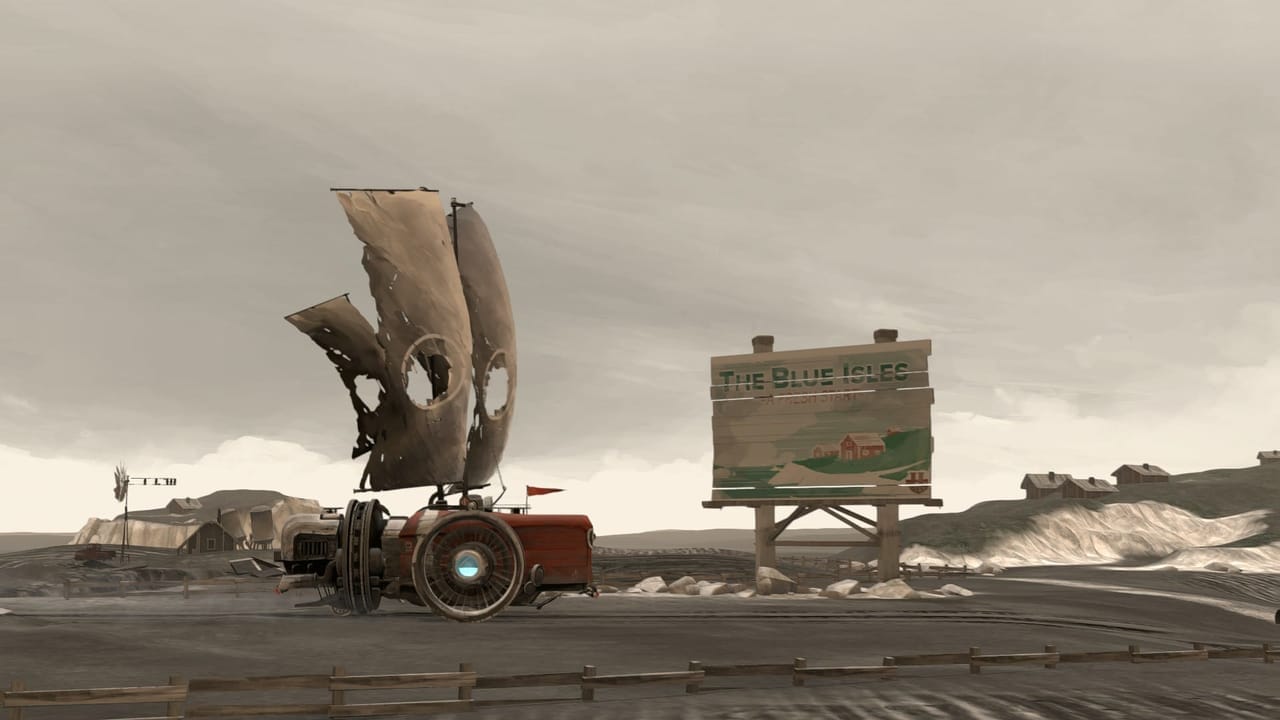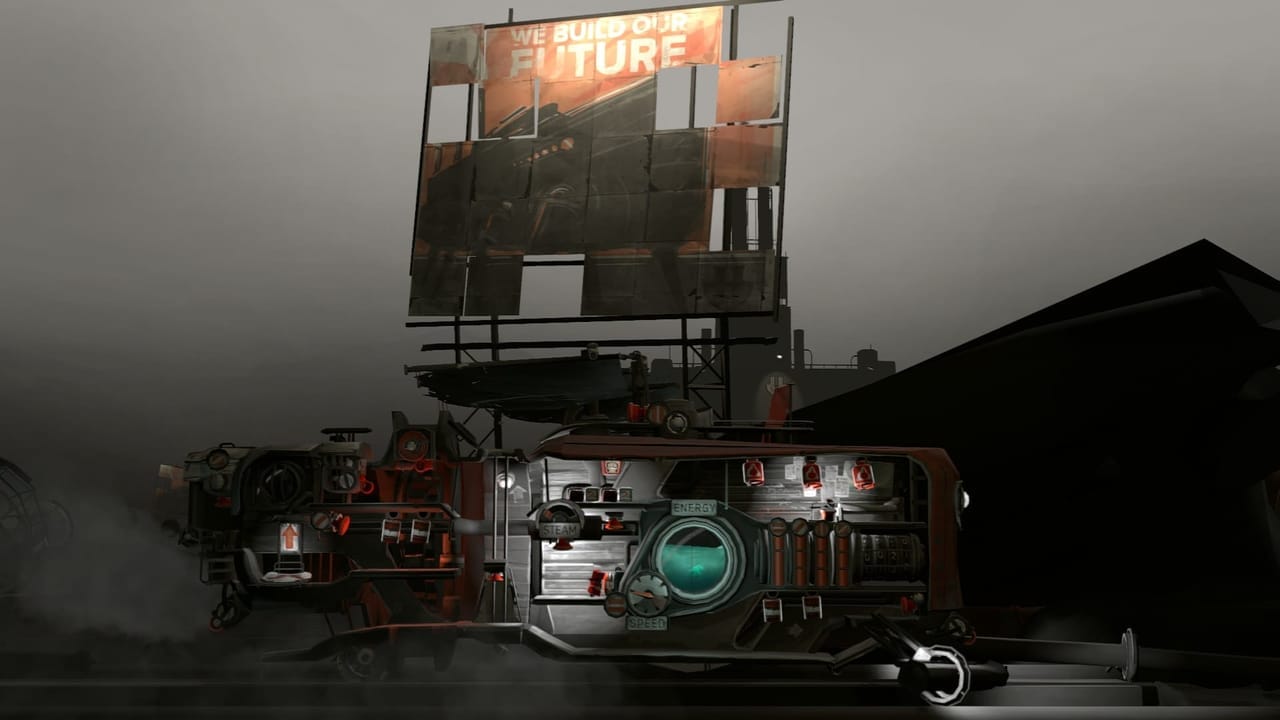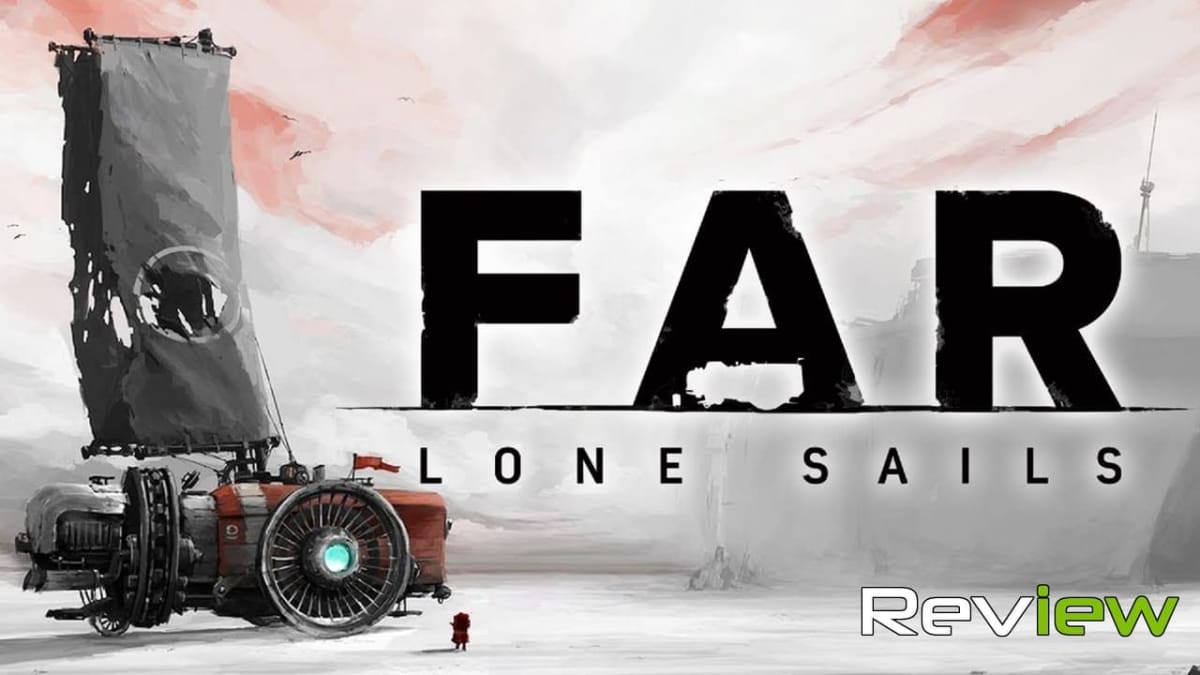Most games are developed as an attempt to emulate the most successful games of their respective niche. At best, developers try to distinguish their games cosmetically. Such games can still be very good and fun to play, but very few of them can be considered original. In stark contrast, FAR: Lone Sails is one of the most original games I’ve played in a while. The debut title of Swiss studio Okomotive, it is a “vehicle adventure” game, possibly the first of its kind.
It takes place in a post-apocalyptic world with dieselpunk elements. You play as a little fellow clad in what looks like a red raincoat. I called him the Engineer. Sparse input prompts lead you forward in what at first may seem like a typical side-scrolling game. Until you reach the Okomotive, the vehicle where the adventure takes place. There are few words and signs to guide you. There is no tutorial. The mechanics speak for themselves.

When we talk about mechanics in games, it’s like an abstract catch-all for anything dealing with rules, interface or input. In physics, mechanics simply means movement. FAR is all about movement, and every single mechanic is there to generate movement. You push the big red button and the Okomotive starts moving. It consumes energy, which needs to be replenished, so you dump junk on a platform, push another button and off it goes into the energy tank. As the vehicle accelerates, it builds up steam. When the steam dial is full, you press another button to release it, and the vehicle lunges forward a bit. It’s as simple as it gets, but there is something remarkable about that simplicity.
Along the way, you pick up the retractable sails that will sit on top of the machine and use the winds for extra speed. You’ll also get a vacuum machine to pick up junk automatically. It’s a nice feeling to have your fully-furnished vessel up and running. You can hang up some of the cool junk on the top floor next to your bed to feel cozy. It’s all useless and you can use it for energy if you need it, but it’s the only companionship the game offers.

The desolation is all-encompassing. The developers told you: “it’s just you and your machine vs. the big nothing”. This big nothing is somehow more daunting and awe-inspiring than the usual post-apocalyptic tropes. There is something comforting about killing monsters, mutants, and raiders in other games. That is lacking here. There is nothing to kill, only the remains of a civilization for you to witness. There are no answers, nothing is communicated.
The stunning atmosphere accentuates this muted bleakness. The soundtrack, full of fertile silences between the notes, is a thing of true beauty. At once suspenseful, blissful, engaging, mysterious, it sticks with you for days in a way that catchy tunes do not. The environment art for the side-scrolling levels is like a sprawling canvas. It makes you long for what’s there beyond the horizon, wishing you could explore the game world in 3D.

There are glimpses of the history behind it all, but that’s all they are, glimpses. The puzzles present themselves as organic and uncomplicated pieces of a larger puzzle where the major pieces are missing. There is some challenge to see what is right in front of you sometimes, but simplicity wins out again. This is more of a pleasant journey than a full-on odyssey, which fits the context. You may end up yearning for more at the end of the road, but the bittersweet stillness of it all is worth it.
Minor annoyances include sometimes having to watch your Engineer dragging his tiny limbs across the wastes. Handling the multitasking operations in the Okomotive can also get clunky. Some might say the gameplay itself is too simplistic, but I’d say they’re looking for another kind of game. It could definitely be a bit longer, but at least it doesn’t overstay its welcome. At a time when games try to completely consume our lives, a short and sweet game with a clear beginning and ending is very welcome.

FAR: Lone Sails is contemplative and thoughtful in ways that adventure games are usually not. When it plays to its strengths, it makes you realize where you are, the camera zooming out, the soundtrack crashing down. By refusing to explain or expand on the game world, it becomes richer and more fascinating. The frenzied action to propel the vehicle is a counterpoint to its usual quietness and serenity. Few games can offer this range of experiences at the same time.
Our FAR Lone Sails review was conducted on PC via Steam with a copy provided by the developer. It is also available DRM-Free via GOG.
Review Summary
FAR: Lone Sails is a miniature masterpiece, no less great for its compact simplicity. A must-play for anyone interested in post-apocalyptic scenarios, atmosphere-heavy games, and low-key environmental narrative.
(Review Policy)Pros
- Stunning Atmosphere
- Excellent Soundtrack
- Simple and Fun Gameplay
- Self-Explanatory Mechanics
Cons
- Slow Character Movement
- Vehicle Gets Cramped
Have a tip, or want to point out something we missed? Leave a Comment or e-mail us at tips@techraptor.net








